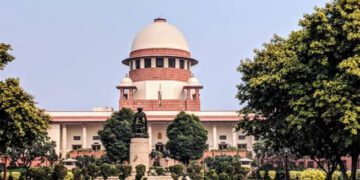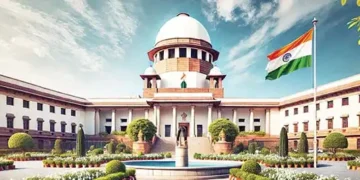Blitz Bureau
NEW DELHI: The Supreme Court has declined to order a blanket stay the operation of the Waqf (Amendment) Act, 2025, while granting limited interim relief in respect of certain contentious provisions. A Bench headed by Chief Justice of India (CJI) BRGavai on September 16 observed that courts must exercise restraint when asked to stay laws enacted by Parliament.
“By now, it is a settled principle of law that the courts should be very slow in granting interim relief by way of staying the provisions of an enactment,” said the Bench, also comprising Justice A.G. Masih, adding that such an interim relief can only be granted in “rare and exceptional cases”.
“In the totality of the circumstances, we do not find that any case is made out to stay the provisions of the entire statute,” the apex court said, rejecting the prayer for blanket stay on implementation of the Act. At the same time, the Bench issued certain protective directions and stayed the requirement that only a person “professing Islam for at least five years” can create a waqf, until rules are framed for its implementation. Similarly, provisions empowering designated officers to treat disputed properties as Government land pending verification have also been put on hold.
It further directed that the Central Waqf Council — constituted under Section 9 of the amended Waqf Act — should not consist of more than 4 nonMuslim members out of 22. Though it declined to stay the provision of Section 23 of the amended Waqf Act, the Bench directed that “as far as possible, an effort should be made to appoint the Chief Executive Officer of the Board who is the ex officio Secretary from amongst the Muslim community”.
On the controversial deletion of waqfby-user, the apex court refrained from granting an immediate intervention, saying: “If Mutawallis (custodians) for a period of 102 years could not get the waqf registered, as required under the earlier provisions, they cannot claim that they be allowed to continue with the waqf even if they are not registered.”
It observed that the Mutawallis who failed to apply for registration of waqf properties for three decades cannot now argue that the legal requirement of submitting a copy of the waqf deed is arbitrary.
The Supreme Court declined to stay Section 3D of the amended Waqf Act, which renders void any declaration of protected monuments or areas as waqf, noting that the provision was enacted after the Archaeological Survey of India (ASI) highlighted difficulties in preserving monuments due to overlapping claims by mutawallis.
Further, the apex court prima facie opined that Section 3E of the amended Waqf Act, which prohibits declaring land in Scheduled or Tribal areas as waqf property, is not arbitrary and has a clear nexus with its objective. The apex court clarified that its observations were made on a prima facie basis for the limited purpose of examining whether an interim stay should be granted.
“The observations made…will not prevent the parties from making submissions with regard to the validity of the provisions contained in the amended Waqf Act or any of the provision(s) therein,” it added.

























